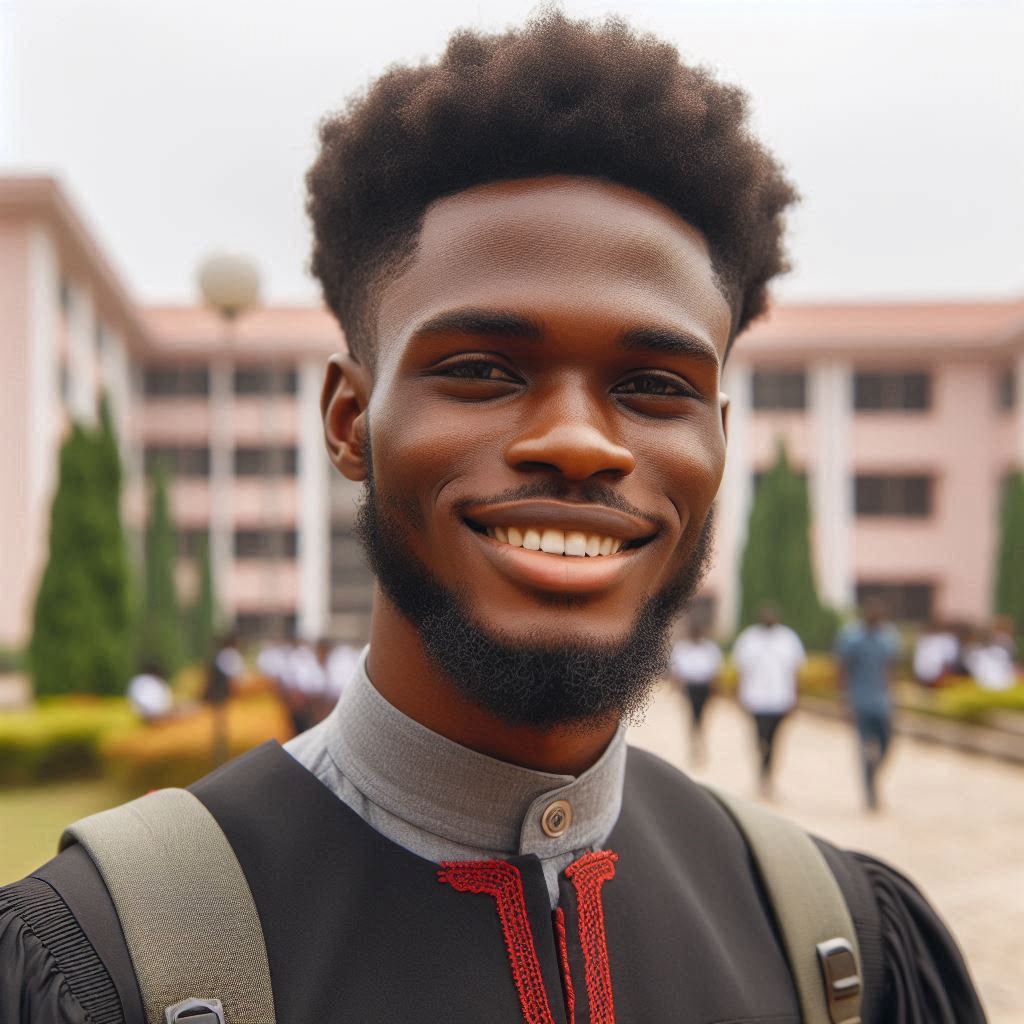Introduction
In Nigeria, as in many parts of the world, the field of special education faces numerous challenges that significantly impact its efficacy and reach.
Understanding these challenges is crucial for developing strategies to improve the educational outcomes and quality of life for individuals with disabilities.
Special education refers to tailored educational services designed to meet the unique needs of individuals with disabilities.
These disabilities may include physical, cognitive, emotional, or developmental impairments that hinder their ability to learn or participate fully in traditional educational settings.
The aim of special education is to provide these individuals with the necessary support and accommodations to achieve their full potential academically, socially, and personally.
In Nigeria, the landscape of special education is characterized by a mix of public and private initiatives, as well as community-driven efforts.
However, the resources and infrastructure dedicated to special education often fall short of what is needed.
Many schools lack trained educators, appropriate facilities, and specialized teaching materials.
Furthermore, there is a significant disparity in access to quality education between urban and rural areas, further marginalizing children with disabilities in remote regions.
Lack of Adequate Funding
In the realm of Nigerian special education, one of the most pressing challenges confronting educators, families, and policymakers alike is the pervasive issue of inadequate funding.
This critical matter extends across various dimensions, severely impacting the quality of education and support services available to students with special needs.
Limited Government Funding for Special Education Programs
At the heart of the problem lies the shortfall in governmental allocation towards special education initiatives.
Despite the undeniable demand and societal benefit of inclusive education, budgetary allocations often fall short of the required mark.
This results in underfunded schools, insufficient teacher training programs, and a lack of specialized facilities designed to cater to diverse learning needs.
Inadequate Resources for Students with Special Needs
The scarcity of resources further compounds the challenge.
Basic educational materials such as textbooks, learning aids, and adaptive technologies are often unavailable or outdated in many special education settings.
This deficit not only hampers the educational experience but also limits the development of essential skills and independence among students with disabilities.
Impact on Quality of Education and Support Services for Students
Consequently, the overall quality of education and support services suffers significantly.
Without adequate funding, schools struggle to retain qualified teachers and support staff trained in special education methodologies.
Moreover, the inability to invest in modern teaching tools and therapeutic interventions hinders the holistic development of students, impairing their potential for future success.
In summary, the dearth of financial resources allocated to Nigerian special education remains a formidable barrier to achieving inclusive and equitable education for all.
Addressing this challenge demands a concerted effort from policymakers, educators, and civil society to prioritize and advocate for increased funding allocations.
Only through sustained investment and strategic resource allocation can Nigeria begin to provide the comprehensive support and opportunities that students with special needs deserve.
Read: Role of Physics Education in Nigeria’s STEM Goals
Shortage of Trained Professionals
One of the key challenges in Nigerian special education is the shortage of trained professionals.
Insufficient Number of Special Education Teachers and Specialists
The first aspect of this challenge is the lack of enough special education teachers and specialists in the country.
This shortage makes it difficult to meet the needs of students with disabilities and special learning needs.
Lack of Professional Development Opportunities
Another contributing factor to the shortage of trained professionals in special education is the lack of adequate professional development opportunities.
Without access to ongoing training and skill enhancement, educators may struggle to effectively support students with diverse needs.
Challenges in Providing Individualized Support and Interventions for Students
In addition to the shortage of trained professionals, there are challenges in providing individualized support and interventions for students.
Each child with special needs is unique and requires personalized attention, but the lack of resources and expertise can hinder the delivery of tailored services.
In short, addressing the shortage of trained professionals in Nigerian special education is crucial to improving outcomes for students with disabilities and special learning needs.
By investing in recruitment, training, and professional development opportunities, the education system can better meet the diverse needs of all learners.
Read: How Secretarial Education Boosts Employability

Stigma and Discrimination
Stigma and discrimination pose significant challenges in the field of special education in Nigeria.
These issues have far-reaching impacts on the quality of education and the overall well-being of students with disabilities.
Social Stigma Associated with Disabilities in Nigeria
One of the key challenges faced by students with disabilities in Nigeria is the pervasive social stigma attached to their conditions.
In many communities, individuals with disabilities are often viewed as less capable or inferior to their able-bodied peers.
This negative perception can lead to social exclusion, limited opportunities for social interaction, and a lack of acceptance within society.
Such stigma can further perpetuate the cycle of discrimination and marginalization faced by students with disabilities.
Transform Your Career with Expert Guidance
Get personalized mentorship consulting that’s tailored to your unique path. Our expert advice is actionable and exclusive.
Get StartedDiscriminatory Practices in Schools and Communities
Discrimination against students with disabilities is also prevalent within schools and communities in Nigeria.
Many educational institutions lack the necessary resources and support systems to accommodate the diverse needs of students with disabilities.
As a result, students with disabilities may face barriers to accessing quality education, including inadequate learning materials, inaccessible infrastructure, and a lack of trained professionals to support their learning needs.
Furthermore, discriminatory attitudes and practices within communities can limit the opportunities available to students with disabilities, hindering their ability to fully participate in social, economic, and cultural activities.
Effects on Students’ Self-esteem and Well-being
The stigma and discrimination experienced by students with disabilities can have detrimental effects on their self-esteem and overall well-being.
Constant exposure to negative attitudes and societal biases can erode students’ sense of self-worth and confidence.
Moreover, the lack of acceptance and support from peers, teachers, and community members can lead to feelings of isolation, loneliness, and psychological distress among students with disabilities.
These factors not only impede students’ academic progress but also impact their mental health and emotional development, making it challenging for them to thrive in educational settings.
In essence, addressing the issues of stigma and discrimination is crucial in creating an inclusive and supportive environment for students with disabilities in Nigeria.
By challenging negative stereotypes, promoting acceptance, and fostering a culture of diversity and inclusion, we can ensure that all students have equal opportunities to learn, grow, and succeed.
Read: Physics Education Resources for Nigerian Students
Limited Access to Education
One of the key challenges in Nigerian special education is limited access to education for students with disabilities.
Barriers to Enrollment and Retention
Many students with disabilities face obstacles when trying to enroll in schools.
Lack of awareness, stigma, and discrimination are common barriers that prevent these students from accessing education.
Additionally, once enrolled, students with disabilities often struggle to stay in school due to a lack of support systems and resources tailored to their needs.
Accessibility Issues in Schools
Another major challenge is the lack of adequate infrastructure and facilities in schools to accommodate students with disabilities.
Many schools in Nigeria are not equipped with ramps, elevators, or accessible bathrooms, making it difficult for students with physical disabilities to move around freely.
Furthermore, there is a shortage of assistive technology and resources that can help students with disabilities access educational materials and participate in learning activities effectively.
Challenges in Providing Inclusive Education
There is a significant gap in providing inclusive education for all students, including those with disabilities, in Nigeria.
Teachers often lack the training and skills necessary to support students with disabilities in the classroom, leading to a limited understanding of how to cater to their diverse needs.
Additionally, there is a lack of collaboration and coordination among stakeholders, including teachers, administrators, parents, and government agencies, in implementing inclusive education policies effectively.
In a nutshell, addressing these challenges requires a multi-faceted approach that involves improving infrastructure, increasing awareness, providing training for educators, and fostering partnerships between various stakeholders in the education sector.
Read: How to Excel in Physics Education Courses in Nigeria
Inadequate Policy and Legal Framework in Nigerian Special Education
Special education in Nigeria faces numerous challenges, among which the inadequacy of policy and legal frameworks stands as a formidable barrier.
At the core of these issues lies the absence of comprehensive policies and supportive laws that are crucial for the effective functioning of special education programs nationwide.
Lack of Comprehensive Policies and Laws Supporting Special Education
One of the most glaring issues is the lack of specific, detailed policies tailored to the needs of special education.
Existing policies often generalize educational practices, neglecting the specialized requirements of children with disabilities.
This gap results in insufficient resources, inadequate training for teachers, and a lack of targeted interventions that are essential for the holistic development of special needs students.
Inconsistencies in Implementation and Enforcement
Even where policies do exist, their implementation across different regions of Nigeria is inconsistent.
This disparity leads to unequal access to educational opportunities for children with disabilities depending on their geographical location.
Moreover, the enforcement of these policies is often lax, further exacerbating the challenges faced by students, parents, and educators in the special education sector.
Need for Policy Reforms to Address Challenges in the Sector
There is an urgent need for comprehensive policy reforms to address these systemic challenges.
Reforms should include the development of specific guidelines for inclusive education, the allocation of adequate funding to support special education programs, and the establishment of mechanisms to ensure the effective implementation and enforcement of these policies nationwide.
Furthermore, stakeholders, including government bodies, educational institutions, advocacy groups, and communities, must collaborate to draft inclusive policies that cater to the diverse needs of children with disabilities.
These policies should prioritize accessibility, curriculum adaptations, teacher training, and parental involvement to create a supportive environment where every child has an equal opportunity to thrive academically and socially.
Therefore, while Nigeria has made strides in recognizing the importance of special education, the sector continues to grapple with the inadequacies of its policy and legal frameworks.
Addressing these challenges through robust policy reforms is essential to ensuring that every child, regardless of ability, receives the quality education they deserve.
Conclusion
The landscape of special education in Nigeria is fraught with significant challenges that must be urgently addressed to ensure a more inclusive and equitable future for individuals with disabilities.
The challenges highlighted include inadequate funding and resources, which severely limit the establishment and maintenance of special education facilities.
A lack of trained personnel exacerbates this issue, as qualified teachers and specialists are essential for providing tailored education and support.
Additionally, societal stigma and cultural beliefs about disabilities contribute to marginalization and discrimination, hindering access to education and opportunities for many individuals with disabilities.
To tackle these challenges effectively, concerted efforts are needed from the government, stakeholders, and local communities.
Firstly, the government must prioritize special education in national policies and budgets, allocating sufficient funds to improve infrastructure, provide training for teachers, and develop inclusive curricula.
Stakeholders, including NGOs, advocacy groups, and international organizations, should collaborate with government bodies to advocate for policy reforms and offer support in areas such as teacher training and community sensitization.
Communities play a crucial role in fostering inclusivity by promoting acceptance and understanding of disabilities, thereby creating a supportive environment for individuals with special needs.




